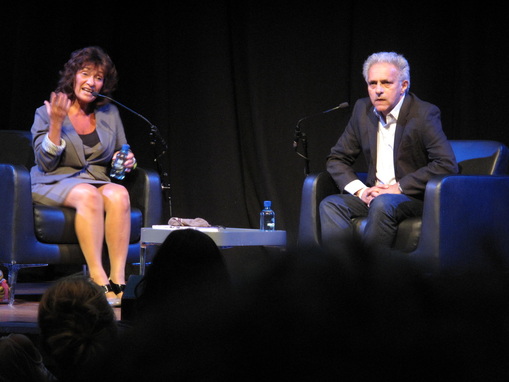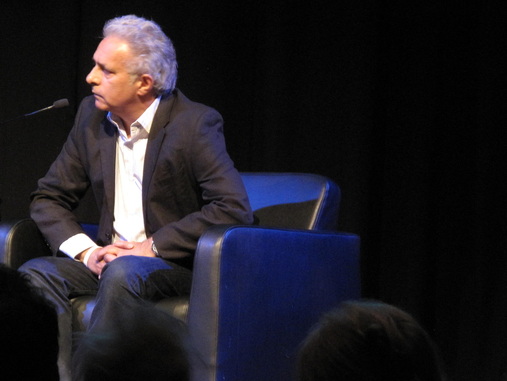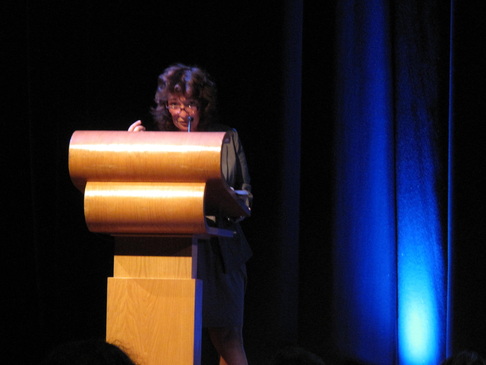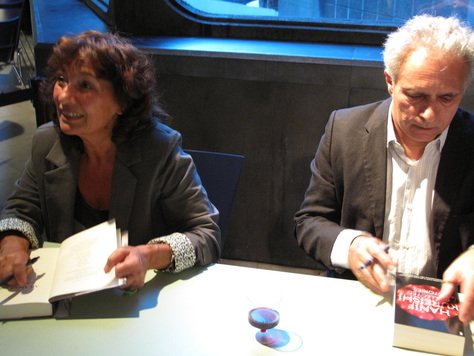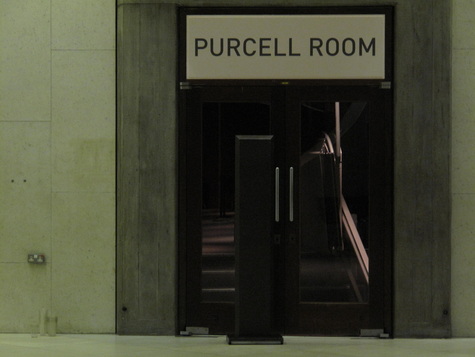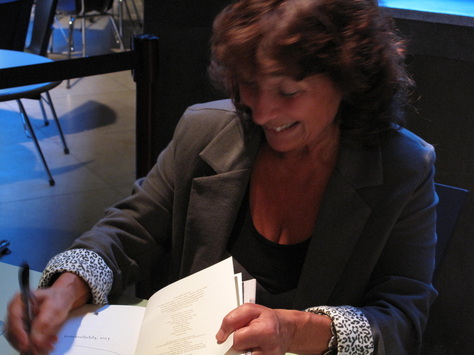19 July 2011
This article is on Lisa Appignanesi in conversation.
I originally wrote this for the London Literature Festival 2011 at the Southbank Centre.
LOVE FEST: AN EVENING WITH LISA APPPIGNANESI
“Everything is about love, and love is about everything.” So begins Lisa Appignanesi.
On Monday 4th July in the Purcell Room, Queen Elizabeth Hall, as part of the Great Thinkers strand, two writers, Lisa Appignanesi and Hanif Kureishi, discussed the former’s new book – All About Love. We were spoiled to have Kureishi as the gentle inquisitor! Did I hear that right? The book is about the lifespan of love. Wow. Who wouldn’t be interested in that?! Appignanesi looked at psychology, philosophy and literature. Not poetry and lyrics, as were too expensive. The remit included falling in love, and sustaining/maintaining love. “Hanif is in the book too.”
Romantic/sexual love is like a form of madness, says Kureishi (from now on ‘K’). Lisa Appignanesi (from now on ‘LA’) responds that it is a delirium, quoting Shakespeare and others. Passion is unruly, irrational, fuelled by unconscious desires. K, “Why would anyone want that?” LA – we find meaning of intensity, and of the body, especially when we’re young. It is personal and cultural/societal, the latter where romance comes from. K, like a devil’s advocate, states that the less you know someone the more you like them. They can fix your problems. LA says that romance was traditionally for women, used for men to civilise them, and make them more attractive. K mentions it is an illusion. LA answers very well, with the idea that we need the illusion so that barriers can be overcome for people to come together. K asks about the attraction of adultery (a theme in his work, Intimacy). LA says there are the forbidden and obstacles and the zing, but it is often short-lived. She talks about us growing up in threes; including in a single parent family, there is the spectre of the third. The third person introduces aliveness into a relationship, re-stimulating youth. K has never been married, is looking forward to it, LA makes it sound appealing [audience laughs]. LA says you can introduce a child to be the third.
|
|
|
LA opines it is hard to talk about love in public. On the page or with another, it’s intimate. K – men don’t talk about love or relationships. L tries to break apart the Mars/Venus paradigm. She is not an evolutionary biologist, and doesn’t believe in stereotyping sexual relations. K asks about other kinds of love – e.g. love for children. LA looks at the manifestations of love. They talk about parenting, identity, expectations, advice columns; the last can be a problem because you don’t live up to expectations. There is also talk about the women (female independence) and gay (permissiveness – you can love the man or woman in the same person) movements being the biggest change to relations. K enquires re the generation above, who seem less tormented by someone better out there for them. LA quotes Balzac, “Domesticity is the great master that kills love”. But there may be less ecstasy, but more pleasures. Writers don’t often admit that they like a routine; and K agrees – writers are very organised.
K questions about scandals in the paper every day, people risk everything. LA answers that celebrities are like our gods, they live out heightened lives. The two then talk about the point of marriage. The history is of property and progeny. In the West, it is love, passion, settled life and progeny; a huge burden of expectation. LA thinks that second marriages tend to be more successful than the first. Why? More settled? Laughter is very important in a relationship. LA wisely suggests that we give power to the other by desiring, by loving. If you worry about how much sex you should have, and what positions, that can kill it.
LA then reads from her book. K states that the people you love are the people that you hate, e.g. child being spanked. LA adds to that; the opposite of love is not hate, but indifference. Love is passion. When you fall in love, you fall in love with the “who”, and when you leave it is because of attributes, the “what”. Hate is “who” too. NB/ with dating agencies, you don’t fall in love with attributes. K and LA both rather cutely call each other “the love doctor”.
There was so much to analyse and discuss further I could’ve happily listened for hours more. Lisa Appignanesi is charismatic and articulate, while Hanif Kureishi has a droll wit. I was so fascinated by this perceptive and universal discussion, I bought the book and started reading it immediately. And that hardly ever happens. What a great Festival.
There was so much to analyse and discuss further I could’ve happily listened for hours more. Lisa Appignanesi is charismatic and articulate, while Hanif Kureishi has a droll wit. I was so fascinated by this perceptive and universal discussion, I bought the book and started reading it immediately. And that hardly ever happens. What a great Festival.


